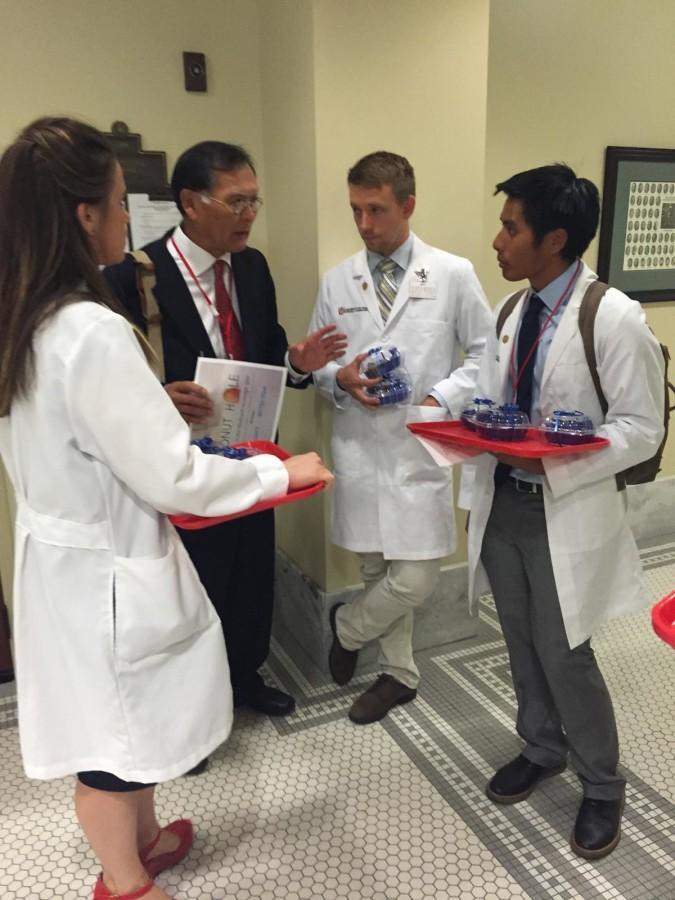Imagine receiving a box full of donut holes, all of which represent the amount of people who are lacking medical coverage. Would you help those people?
On Aug. 19, second-year medical students Spencer Merrick and John Sanchez, along with 20 other medical students, delivered these boxes of donut holes to the Utah Legislature with that message.
They also included an invitation to their documentary “Donut Hole: Life in the Medicaid Coverage Gap.” This gap, which they call the “donut hole,” is made up of people who cannot get Medicaid for various reasons, such as not having children, having a disability or not making the poverty cut-off line.
“I had the idea to do this film because of the voting down of the Healthy Utah plan in the spring,” Merrick said. “It was really disappointing because, in my opinion, it was shut down due to ideological opinions.”
Sanchez said the film is intended to inform the public, not point fingers.

“We are not blaming anyone in this documentary,” Sanchez said. “We are emphasizing that this is an urgent problem that needs action sooner rather than later. Real people are being affected by lack of affordable access to care.”
The documentary focuses on the lives of people who can’t afford health care, such as Rai and Dil Gurumg, two childless refugees who were brought to the U.S. where they received federal health insurance for eight months but then were left to fend for themselves.’
“Even if they want to work and are working,” Merrick said, “many of the people we interviewed could not pay for health care out-of-pocket since they are not above the poverty line.”
Carol Frisby was interviewed a month before she passed away. She was on the Primary Care Network (PCN), a program designed by the state as a bandage to cover the “donut hole.” PCN covers doctor appointments and prescriptions, but there is little to no funding for an examination, such as a colonoscopy. Frisby needed a colonoscopy for years for her progressing colon cancer, a curable disease until it reaches stage four. She was forced to go to the ER when her conditions had become unbearable and received some intense treatments, but it was too late.
Currently, 65,000 people in Utah do not have health insurance because they cannot meet the criteria for Medicaid coverage. Merrick said the documentary helps to put a face on the problem,
“We cannot wait any longer, we cannot push it to the next legislature session,” Merrick said. “We need to put ideologies aside and look at what Utah wants.”
Merrick and Sanchez both came from film backgrounds before they went to medical school. They created the film with the support of 20 other medical students and one law student. “Donut Hole: Life in the Medicaid Coverage Gap” will be shown on Tuesday at the new law building. It will also be posted online.
@chriswritine











